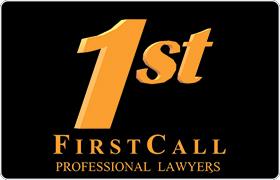Pearblossom RICO Act Lawyer, California
Sponsored Law Firm
-
 x
x

Click For More Info:
-
First Call Legal Services Corporation
530 Hacienda Dr Unit 101B Vista, CA 92081» view mapCriminal Defense Effective. Versatile. Decisive.
Our vision is to build strong, trust-based client relationships from our first handshake. Every challenge is an opportunity. You need the RIGHT PEOPLE for the job you want done.
760-690-3999
Gina Tennen
✓ VERIFIEDCriminal, Military, Juvenile Law, White Collar Crime, RICO Act
LibertyBell Law Group consists of a group of elite criminal defense attorneys who have become some of the most sought after lawyers in the nation. Our... (more)
Shaun Khojayan
Criminal, White Collar Crime, RICO Act, Felony
Status: In Good Standing Licensed: 26 Years
FREE CONSULTATION
CONTACT First Call Legal Services Vista, CA
First Call Legal Services Vista, CA Practice AreasExpertise
Practice AreasExpertise

